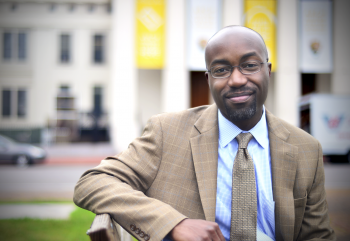The name Health Equity Works is both a declarative sentence and an evocative image. It clearly states that health equity works to the benefit of entire communities by giving everyone the opportunity to thrive and flourish.
Health Equity Works also evokes an active foundry or workshop environment, where information and ideas are transformed into collaborative action that advances health equity.”
– Director Dr. Jason Purnell
We believe
Health Equity Works is passionate about the transformative process of data and community collaboration to drive health equity. We’ve worked with more than 100 community organizations to accelerate action. Despite differences in size, structure, objectives, visions, motivations, and goals inherent in all partnerships, we believe:
- Change is possible
- Strategic action is rooted in data and evidence
- Health equity cannot be achieved alone
- Health and well-being are rooted in equity and opportunity: nurturing early childhood systems, stable and decent housing, healthy neighborhoods, strong schools, accessible health care and employment, and vital social networks
- We are all better when everyone has the opportunity to thrive
The work
Health Equity Works is a research-based initiative housed in the Brown School of Washington University in St. Louis that specializes in bringing quality, accessible research on health disparities into communities to accelerate collaborative action and systems change.
We recently changed our name to Health Equity Works from For the Sake of All to more fully reflect the work we do and the model we’ve developed in St. Louis which uses data to accelerate community action for change. Health Equity Works continues to work in St. Louis with its dedicated partners on key strategies and initiatives in areas such as school health, quality neighborhoods, economic opportunity, and early childhood.
We also work collaboratively with new communities to improve health disparities using our proven model of data accelerating action.
Our new name reflects our vision for change
Our name plays on the word “work” as both a verb and a noun. As an active verb, Health Equity Works in a very powerful way for entire communities by making them healthier, more inclusive, and more sustainable. As a noun, Health Equity Works evokes an active foundry where information and ideas are forged by partnerships into powerful products to accelerate health equity.
We were founded on a landmark St. Louis report
Health Equity Works was founded March 2013 under the name For the Sake of All with funding from the Missouri Foundation for Health. It began as collaboration between scholars at Washington University and Saint Louis University to report on the health and well-being of African Americans in the St. Louis region by highlighting social, economic, and environmental factors that drive differences in outcomes.
The academic team was assisted by a Community Partner Group with representation from public health, healthcare, business, education, civic organizations, and media. With extensive community engagement, the team produced five policy briefs in 2013 on topics including poverty, education, mental health, residential segregation, and chronic disease. In March 2014, community members were invited to participate in a Community Feedback Forum to provide their input on draft elements of the final report.
Hailed by local media as a “landmark report,” For the Sake of All: A Report on the Health and Well-Being of African Americans in St. Louis—And Why It Matters for Everyone, was released on May 30, 2014 at a community conference at the Missouri History Museum. The report made recommendations for increased attention and investment in the areas of economic opportunity, early childhood, school health, quality neighborhoods, mental health, and chronic disease.
The report put the issue of African American health disparities into the regional conversation. The report found a disturbing gap in life expectancies between African Americans and whites based on ZIP codes. Indeed, average life expectancies differed by as much as 18 years between a poor highly segregated African American neighborhood in St. Louis called JeffVanderLou and predominantly white and wealthy city of Clayton – two communities located less than 10 miles apart.
We were a key provider of data and research after events in Ferguson, Missouri
Findings in the report became essential information for St. Louis after protests and riots erupted in nearby Ferguson less than three months after the release of the report. The report became a resource for a governor-appointed task force called The Ferguson Commission. That group went on to publish a report entitled Forward Through Ferguson, now a signature nonprofit, that offered 185 calls to action to achieve equity in St. Louis by 2035.
We bring data to the community to motivate collaboration
In 2015 and 2016 For the Sake of All began a second phase of work to further engage the community in the findings of the original report and forge workable ideas for systems change in St. Louis to better achieve health equity. For the Sake of All Discussion Guides and Action Toolkits were developed and distributed at heavily attended Community Action Forums in Early Childhood, Coordinated School Health, Quality Neighborhoods, Mental Health, and Chronic Disease.
Two Next Steps meetings were convened to solidify specific areas of action. Multi-sector work groups were formed in the six strategy areas and met regularly to blueprint both policy and systems changes.
Accelerating action
Health Equity Works and its many partners are now moving forward with exciting local and national initiatives on health equity and opportunity. Our work is accelerating programs and policy change in schools, neighborhoods, governing bodies, and city halls.
Why? Because health equity works for entire communities to make them healthier, more inclusive, and sustainable for the future.

